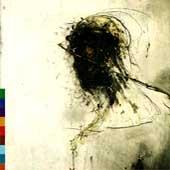That they said (in boast), "We killed Christ Jesus the son of Mary, the Messenger of Allah";- but they killed him not, nor crucified him, but so it was made to appear to them, and those who differ therein are full of doubts, with no (certain) knowledge, but only conjecture to follow, for of a surety they killed him not: (4:157)
For a while now, I've started to become aware that "the" Islamic understanding of the crucifixion is not *quite* as simple as I once believed. Most Muslims maintain, based on 4:157 that Jesus (as) in no sense, died on the cross, nor was he ever even put on it. In this camp, some maintain that somehow Judas was made to look like Jesus and that he was put on the cross instead. But there have also been minority opinions which to varying degrees have allowed for more points of contact with the Christian narrative (including some which even affirm Christ's biological death on the cross).
One good resource in this area is the book by Todd Lawson, The Crucifixion and the Quran which looks at a wide range of Muslim commentaries on 4:157. The author is a Bahai, and so perhaps one could argue that he wrote the book, in part, out an interest to gather evidence which supports Bahai interpretations of topic. (The Bahais affirm that the Quran is "absolutely authentic" including 4:157. But they also accept the validity of much of the Bible, in particular they, affirm the basics of the Biblical passion narrative. According to Shoghi Effendi, the Guardian of the Bahai Faith, "The crucifixion as recounted in the New Testament is correct. The meaning of the Qur'ánic version is that the spirit of Christ was not Crucified. There is no conflict between the two.")
Whatever his agenda, Lawson's book is an interesting and valuable round-up of different tafsirs on the crucifixion verse and different Muslim narratives on the end of Christ's ministry on Earth.
John 11
[45] Many of the Jews therefore, who had come with Mary and had seen what he did, believed in him;
[46] but some of them went to the Pharisees and told them what Jesus had done.
[47] So the chief priests and the Pharisees gathered the council, and said, "What are we to do? For this man performs many signs.
[48] If we let him go on thus, every one will believe in him, and the Romans will come and destroy both our holy place and our nation."
[49] But one of them, Ca'iaphas, who was high priest that year, said to them, "You know nothing at all;
[50] you do not understand that it is expedient for you that one man should die for the people, and that the whole nation should not perish."
[51] He did not say this of his own accord, but being high priest that year he prophesied that Jesus should die for the nation,
[52] and not for the nation only, but to gather into one the children of God who are scattered abroad.
[53] So from that day on they took counsel how to put him to death.
or if you are a fan of Jesus Christ Superstar:
In other words, Jesus' growing popularity while associated with messianic claims (i.e. claiming to be the king of the Jews when under Roman occupation) was politically subversive in a way which would bring about massive retaliation from the Romans. (And in fact we know this was realistic concern because only one generation later a different popular Jewish rebellion would cause the Romans to strike against the Jews and destroy Jerusalem and the Temple in 70 AD.) Dr. Ataie seems to be arguing that if it weren't for Jesus' death on the cross, this destruction would have occurred much sooner.
Also note that according to John 11, Caiphas "did not say this of his own accord, but being high priest that year he prophesied that Jesus should die for the nation". This is an interesting, but seldom discussed point. The Jewish authorities who sought to kill Christ were not just acting out of jealousy or resentment over Christ's popularity or a selfish fear for their own political position. They were at least partially motivated by a legitimate concern for the fate of the Jews under Roman occupation.
And then here is a paper which covers much of the same ground but with more detail: “They Killed Him Not”: The Crucifixion in Shi‘a Isma‘ili Islam


